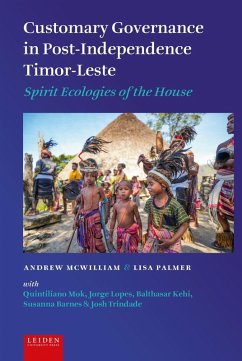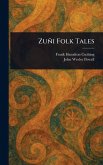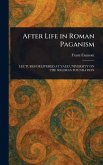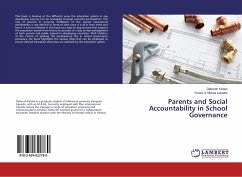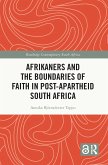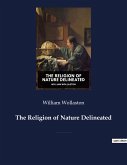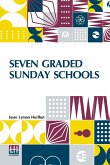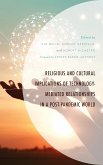Andrew Mcwilliam, Lisa Palmer
Customary Governance in Post-Independence Timor-Leste
Spirit Ecologies of the House
Andrew Mcwilliam, Lisa Palmer
Customary Governance in Post-Independence Timor-Leste
Spirit Ecologies of the House
- Gebundenes Buch
- Merkliste
- Auf die Merkliste
- Bewerten Bewerten
- Teilen
- Produkt teilen
- Produkterinnerung
- Produkterinnerung
This book examines the dynamics of a 'return to custom' in post-independence Timor-Leste; a set of practices connecting ancestral house communities with the complex spirit ecologies upon which people's livelihoods and well-being depend. Drawing on detailed comparative studies, it considers the contribution of custom and its inter-generational legacies to the development of sustainable social and environmental policies of governance in Southeast Asia's newest nation-state. The book is both a timely study of social renewal in post-conflict societies, and a creative contribution to the…mehr
Andere Kunden interessierten sich auch für
![Zuñi Folk Tales Zuñi Folk Tales]() Frank Hamilton CushingZuñi Folk Tales31,99 €
Frank Hamilton CushingZuñi Folk Tales31,99 €![After Life in Roman Paganism After Life in Roman Paganism]() Franz CumontAfter Life in Roman Paganism30,99 €
Franz CumontAfter Life in Roman Paganism30,99 €![Parents and Social Accountability in School Governance Parents and Social Accountability in School Governance]() Deborah KiraboParents and Social Accountability in School Governance24,99 €
Deborah KiraboParents and Social Accountability in School Governance24,99 €![Afrikaners and the Boundaries of Faith in Post-Apartheid South Africa Afrikaners and the Boundaries of Faith in Post-Apartheid South Africa]() Annika Björnsdotter TeppoAfrikaners and the Boundaries of Faith in Post-Apartheid South Africa178,99 €
Annika Björnsdotter TeppoAfrikaners and the Boundaries of Faith in Post-Apartheid South Africa178,99 €![The Religion of Nature Delineated The Religion of Nature Delineated]() William WollastonThe Religion of Nature Delineated19,00 €
William WollastonThe Religion of Nature Delineated19,00 €![Seven Graded Sunday Schools Seven Graded Sunday Schools]() Jesse Lyman HurlbutSeven Graded Sunday Schools11,99 €
Jesse Lyman HurlbutSeven Graded Sunday Schools11,99 €![Religious and Cultural Implications of Technology-Mediated Relationships in a Post-Pandemic World Religious and Cultural Implications of Technology-Mediated Relationships in a Post-Pandemic World]() Religious and Cultural Implications of Technology-Mediated Relationships in a Post-Pandemic World102,99 €
Religious and Cultural Implications of Technology-Mediated Relationships in a Post-Pandemic World102,99 €-
-
-
This book examines the dynamics of a 'return to custom' in post-independence Timor-Leste; a set of practices connecting ancestral house communities with the complex spirit ecologies upon which people's livelihoods and well-being depend. Drawing on detailed comparative studies, it considers the contribution of custom and its inter-generational legacies to the development of sustainable social and environmental policies of governance in Southeast Asia's newest nation-state. The book is both a timely study of social renewal in post-conflict societies, and a creative contribution to the possibilities of sustainable environmental and cultural resource management in Timor-Leste and the wider region.
Produktdetails
- Produktdetails
- Verlag: Leiden University Press
- Seitenzahl: 200
- Erscheinungstermin: 27. Februar 2026
- Englisch
- Abmessung: 235mm x 156mm x 10mm
- ISBN-13: 9789087284749
- ISBN-10: 9087284748
- Artikelnr.: 75769364
- Herstellerkennzeichnung
- Libri GmbH
- Europaallee 1
- 36244 Bad Hersfeld
- gpsr@libri.de
- Verlag: Leiden University Press
- Seitenzahl: 200
- Erscheinungstermin: 27. Februar 2026
- Englisch
- Abmessung: 235mm x 156mm x 10mm
- ISBN-13: 9789087284749
- ISBN-10: 9087284748
- Artikelnr.: 75769364
- Herstellerkennzeichnung
- Libri GmbH
- Europaallee 1
- 36244 Bad Hersfeld
- gpsr@libri.de
Andrew McWilliam was Professor of Anthropology at Western Sydney University (2017-2024 – now Adjunct Professor). He is a specialist in the anthropology of Southeast Asia, especially Indonesia and Timor-Leste. Recent publications include: 1) Post-Conflict Social and Economic Recovery in Timor-Leste: Redemptive Legacies, 2020 Routledge; 2) Distilling Livelihoods in Timor‑Leste: Fataluku Ecologies of Practice, Human Ecology, 2022 Vol 50 (4) 606-615. 3) Making Money, Missing Home: Reflections on Timorese Informal Labour Migration to Britain, 2022 The Asia Pacific Journal of Anthropology, 23:3, 266-285. Lisa Palmer is a Professor of Environmental Studies in the School of Geography, Earth and Atmospheric Sciences at the University of Melbourne. She has published widely and is the author of an ethnography on people's complex relations with water in Timor-Leste titled Water politics and spiritual ecology: Custom, environmental governance and development (2015, Routledge) and Island Encounters: Timor-Leste from the outside in (ANU Press, 2021). She is a co-editor of Economic Diversity in Contemporary Timor-Leste (LUP, 2023). Quintiliano Mok lives in Melbourne and returns whenever he can to the towns and villages of his homeland in the Baucau Municipality of Timor-Leste. Since 2008 he has carried out research work with Lisa Palmer assisting her to carry out ethnographic research across the Baucau Municipality. He is connected to the Ocabai House in the domain of Bercoli is the house through his paternal grandmother. Jorge Lopes lives in Maubisse in the Ainaro Municipality of Timor-Leste and is the son of an important Maubisse cultural leader who is the head of the Maubisi Mauloko domain. In 2012, Lopes helped establish the Hakmatek tourism co-operative in the villages of Tartehi and Lekitehi. He is currently the elected head of the village of Lekitehi. Balthasar Kehi lives in Melbourne and returns whenever he can to his homeland of Koba Lima, a domain which straddles the international border dividing the island of Timor. He has worked in research internationally for various schools and academic institutions. He holds a PhD from Columbia University, New York. He is co-author with Lisa Palmer of Hamatak Halirin: The cosmological and socio-ecological roles of water in Koba Lima, Timor, Bidragen tot de Taal-, Land- en Volkenkunde 168 (4): 446-471. Susanna Barnes is a socio-cultural anthropologist and associate professor at the University of Saskatchewan. Her research centers on customary governance, land tenure, and intergenerational well-being, with a primary focus on Timor-Leste, where she has conducted extensive fieldwork. She is the co-author of Property and Social Resilience in Times of Conflict and co-editor of Colonial Land Legacies in the Portuguese-Speaking World. Josh Trindade is from the domain of Babulo in Timor-Leste. He was previously an Adviser to the Presidency of the Council of Ministers of Timor-Leste and the Office of the President of Timor-Leste in the area of analysis and research focusing on socio-cultural issues. He has written and published several anthropological papers on Timor-Leste and is currently a graduate researcher with the Indigenous Knowledge Institute, The University of Melbourne.
List of Figures;
Contributors;
Chapter 1. Spirit Ecologies of the House: Customary Governance in
Post-Independence Timor-Leste;
Chapter 2. Fataluku Ritual Houses: Status, relation and renewal;
Chapter 3. Waima'a House Cultures: Emergence, connection, reconstruction;
Chapter 4. Mambai Houses and Ritual Centres;
Chapter 5. [Re]-constituting the ritual domain of Ina Ama Beli Daralai
Babulu Mane Hitu;
Chapter 6. Houses of Koba Lima: Unity and Division;
Chapter 7. Tara Bandu and Customary Governance in post-Independence
Timor-Leste;
Chapter 8. Ambivalent 'Indigeneities' in Timor-Leste: between the customary
and national governance of resources;
Afterword: Negotiating tradition and modernity
Contributors;
Chapter 1. Spirit Ecologies of the House: Customary Governance in
Post-Independence Timor-Leste;
Chapter 2. Fataluku Ritual Houses: Status, relation and renewal;
Chapter 3. Waima'a House Cultures: Emergence, connection, reconstruction;
Chapter 4. Mambai Houses and Ritual Centres;
Chapter 5. [Re]-constituting the ritual domain of Ina Ama Beli Daralai
Babulu Mane Hitu;
Chapter 6. Houses of Koba Lima: Unity and Division;
Chapter 7. Tara Bandu and Customary Governance in post-Independence
Timor-Leste;
Chapter 8. Ambivalent 'Indigeneities' in Timor-Leste: between the customary
and national governance of resources;
Afterword: Negotiating tradition and modernity
List of Figures;
Contributors;
Chapter 1. Spirit Ecologies of the House: Customary Governance in
Post-Independence Timor-Leste;
Chapter 2. Fataluku Ritual Houses: Status, relation and renewal;
Chapter 3. Waima'a House Cultures: Emergence, connection, reconstruction;
Chapter 4. Mambai Houses and Ritual Centres;
Chapter 5. [Re]-constituting the ritual domain of Ina Ama Beli Daralai
Babulu Mane Hitu;
Chapter 6. Houses of Koba Lima: Unity and Division;
Chapter 7. Tara Bandu and Customary Governance in post-Independence
Timor-Leste;
Chapter 8. Ambivalent 'Indigeneities' in Timor-Leste: between the customary
and national governance of resources;
Afterword: Negotiating tradition and modernity
Contributors;
Chapter 1. Spirit Ecologies of the House: Customary Governance in
Post-Independence Timor-Leste;
Chapter 2. Fataluku Ritual Houses: Status, relation and renewal;
Chapter 3. Waima'a House Cultures: Emergence, connection, reconstruction;
Chapter 4. Mambai Houses and Ritual Centres;
Chapter 5. [Re]-constituting the ritual domain of Ina Ama Beli Daralai
Babulu Mane Hitu;
Chapter 6. Houses of Koba Lima: Unity and Division;
Chapter 7. Tara Bandu and Customary Governance in post-Independence
Timor-Leste;
Chapter 8. Ambivalent 'Indigeneities' in Timor-Leste: between the customary
and national governance of resources;
Afterword: Negotiating tradition and modernity

